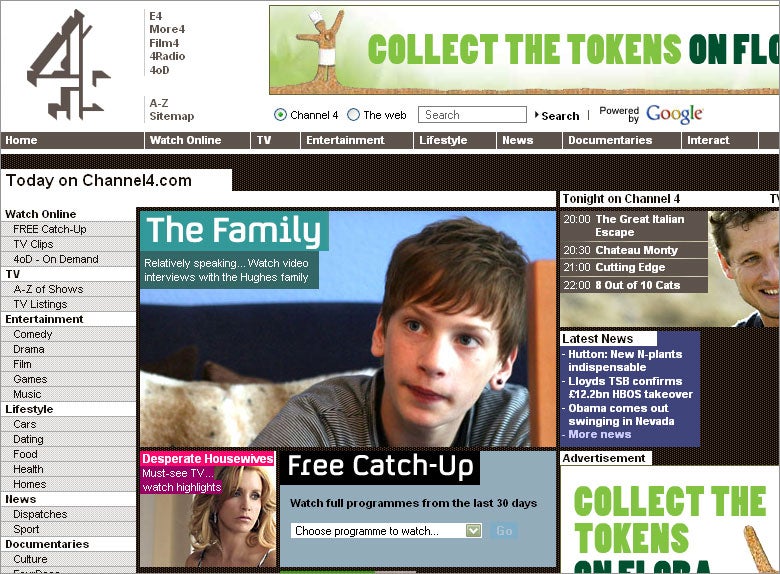Channel 4 faces dispute over £40m funding black hole

Your support helps us to tell the story
From reproductive rights to climate change to Big Tech, The Independent is on the ground when the story is developing. Whether it's investigating the financials of Elon Musk's pro-Trump PAC or producing our latest documentary, 'The A Word', which shines a light on the American women fighting for reproductive rights, we know how important it is to parse out the facts from the messaging.
At such a critical moment in US history, we need reporters on the ground. Your donation allows us to keep sending journalists to speak to both sides of the story.
The Independent is trusted by Americans across the entire political spectrum. And unlike many other quality news outlets, we choose not to lock Americans out of our reporting and analysis with paywalls. We believe quality journalism should be available to everyone, paid for by those who can afford it.
Your support makes all the difference.The Broadcasting watchdog, Ofcom, admitted last night that Channel 4 was heading for a funding deficit after the switch to digital television in 2012.
The broadcaster's chief executive, Andy Duncan, has said Channel 4 will need an extra £100m a year in funding to match its current output of original "public service" content, plus a further £50m to meet its "Next on 4" plans to strengthen its identity, including enhancing its children's and regional programming. But Ed Richards, the chief executive of Ofcom, said the watchdog's research suggested that the shortfall after the analogue signal is switched off could be as little as £60m.
He admitted to an audience of industry figures at the Royal Television Society that "Channel 4 still believe we are being too optimistic".
Speaking ahead of Ofcom's much-anticipated Public Service Broadcasting (PSB) review, which will be published next Thursday, Mr Richards formally ruled out the possibility that the BBC would be the only broadcaster in receipt of public funding. He said Ofcom's research had found that the public wanted news, drama and children's TV to be provided by multiple broadcasters and it was prepared to pay for such an arrangement.
Outlining three "central options" for funding PSB, he acknowledged that Channel 4 and ITV were undergoing difficult times as the television industry suffers a downturn in advertising. Mr Richards accepted that "ITV plc's financial position is worse now than six months ago".
He said: "What viewers would lose out on is original drama that requires significant risk, innovative comedy, current affairs, investigative documentaries, broad-ranging factual programmes, nations and regional news, and original UK programming for school-age children."
The Ofcom chief executive said that multi-channel broadcasters produced only 10 per cent of the total originating programming, outside of the genres of sports and movies.
The three options include a BBC/Channel 4 model, where ITV and channel Five are freed of their obligations to make public service content, and a "refined competitive funding model" where organisations can bid for money to make such shows.
The final option is a "refined evolution model" where ITV continues to provide news, channel Five makes children's shows and Channel 4 receives extra funding to offer PSB programmes across multiple platforms.
Mr Duncan said last night he was encouraged that Ofcom recognised the "urgency of our funding gap".
Join our commenting forum
Join thought-provoking conversations, follow other Independent readers and see their replies
Comments